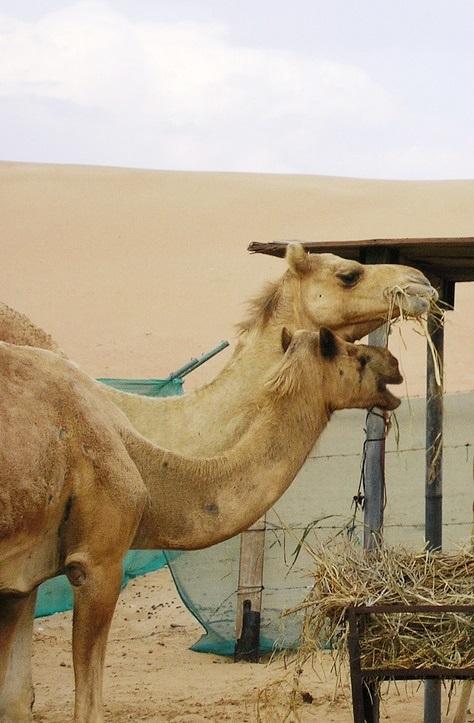In a sign of ongoing MERS-CoV transmission from camels to people in Saudi Arabia, two new illnesses were reported in people who had contact with the animals, one of them a man hospitalized in Bahrain, as Saudi officials reported three more outbreaks in camels.
Also, Saudi Arabia released information on factors that seem to be fueling MERS-CoV (Middle East respiratory syndrome coronavirus) outbreaks in hospitals, such as a lack of recognition among healthcare providers.
Camel sources for 2 new illnesses
The MERS-CoV illnesses detected in Bahrain, which appears to be the first detected in the country, involves a 61-year-old Saudi man who was referred for a coronary artery bypass procedure.
The man tested negative on routine coronavirus screening before the Apr 3 procedure, but he tested positive for MERS-CoV a few days later after he developed high fever and other respiratory symptoms. Manaf Alqahtani, MD, with the Bahrain Defense Force Hospital, described the case yesterday in a post to ProMED Mail, the online e-mail list of the International Society for Infectious Diseases.
The patient required extracorporeal membrane oxygenation (ECMO) and received hemodialysis for renal failure.
Following his positive MERS-CoV test, the man was isolated and other patients in the intensive care unit were transferred to other units. Alqahtani said the patient's family said the man deals with camels, which wasn't revealed during the patient's initial screening. His last known contact with camels was on Mar 28.
ProMED Mail said it has learned from a reliable source that the camel farm is in Saudi Arabia's Eastern province and that, based on protocols, the Saudi agriculture ministry will obtain specimens from the camels.
A report from Bahrain News Agency, also posted on ProMED Mail, said the man has been transferred to a Saudi hospital for follow-up.
Meanwhile, Saudi Arabia's Ministry of Health (MOH) today reported a new MERS-CoV infection in a 71-year-old man from Khaybar, in the northeastern part of the country. The source of his illness is camels, and he is in stable condition.
Overall, Saudi Arabia has reported 1,273 cases, 587 of them fatal, since the virus was first detected in humans in 2012. Seven people are still being treated for their illnesses.
Camel outbreaks in Saudi Arabia
Saudi Arabia's agriculture ministry yesterday reported three more MERS-CoV outbreaks in camels, all associated with confirmed human cases and each in a different part of the country, according to a report to the World Organization for Animal Health (OIE).
All of the events began in January, two of them in camels in village settings: in Al-Kharj in the central part of the country and Bishah in the southwestern part of Saudi Arabia. The third occurred at a farm in the city of Hafar Al Batin in the northeast. There were 18 susceptible camels among the three locations.
Root causes of hospital outbreaks
In its weekly MERS update today, the Saudi MOH said many hospital-linked outbreaks started in emergency departments (EDs), a feature seen in South Korea's outbreaks. The agency added that a lack of awareness about the disease among doctors and a lack of adherence to infection control and prevention practices are among the root causes.
The MOH noted that other factors include inadequate triage, inappropriate case referral, and discharge against medical advice, the MOH said.
In looking more closely at the ED as a source, the agency said overcrowding and irregular control of hospital entrances can contribute to MERS-CoV spread, as can lapses in controlling visitors. Similar patterns were seen in South Korea's outbreaks in 2015.
Saudi Arabia has had some large hospital outbreaks, such as one in Riyadh last summer. Since then, there has been a spate of smaller hospital outbreaks.
The World Health Organization has sent three joint missions to probe the spread of the virus in Saudi Arabia. The most recent one took place in early January, and afterward experts said the country had made progress but was ready to take more proactive steps, such as better surveillance in camels.
See also:
Apr 11 ProMED Mail post
Apr 12 Saudi MOH statement
Apr 11 OIE report
Apr 12 Saudi MOH weekly MERS-CoV report




















